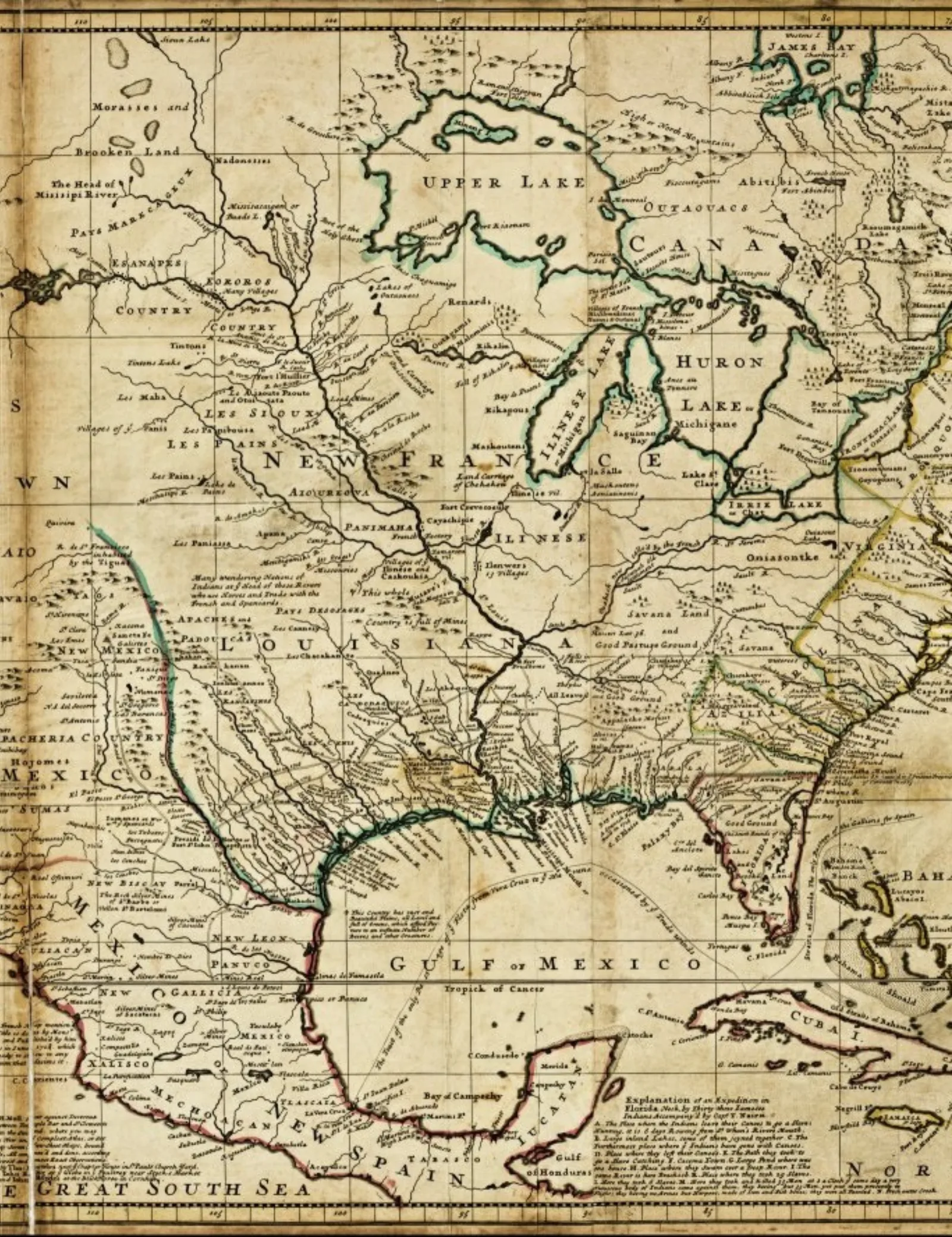Listen to an audio recording of this program.
How can we define "the Midwest"? Is it a delimited geographic region? Does a Midwestern identity exist? What can region tell us that urban/rural or state divides do not?
Historical and contemporary perceptions of the Midwest as “the middle” simultaneously reflect and hide cultural realities, which are diverse and dynamic. The Midwest encompasses the many Indigenous peoples, past and present, who have inhabited and moved across the area for thousands of years. It has been continually transformed by migration and immigration: successive waves of people of European descent, leaving crowded Eastern cities or the old country; the Great Migration of African Americans from the South; the arrival of Latinos to build the region's railroads, farms, and food processing industries; and a continuous stream of immigrants from elsewhere in the world: the Middle East, south and east Asia, Africa.
The Midwest’s iconic environment – lakes and rivers, prairies and plains, forests and dunes – has also long shaped its history and public perception of the area. Waterways present a starting point for a geographic conceptualization of the Midwest. From this angle, the Midwest region extends from the Missouri River east to the Ohio River, encompassing the upper Mississippi watershed and the Great Lakes area. These boundaries neatly exclude the far West and the deep South, each of which has been shaped by different climates, economies, and politics. Although the Midwest’s waterways connect it to neighboring regions in important ways, the environmental distinctiveness and sensitivity of the interior watershed helps explain the often-contested growth of its human population and economy. Many of these broad political and economic patterns may be seen as evolving networks of people, infrastructures, resources, and goods.
This program is part of a multidisciplinary project titled What Is the Midwest? Offering perspectives beyond stereotypical portrayals of the Midwest as the nondescript “middle” of the country, the project explores the unique confluence of environmental and human factors that have defined the region and made it distinct.
Led by the Newberry in collaboration with our scholarly and cultural partners, What is the Midwest? will pursue these themes through programs, digital resources, and a fall 2019 gallery exhibition.
Join us as five scholars bring the frameworks of their distinct fields and disciplines to bear on the question, "What Is the Midwest?"
Schedule
10 - 10:30 Coffee and Continental Breakfast
10:30 - 11:30 Session 1
- Welcome remarks: Brad Hunt, Newberry Vice President of Research and Academic Programs
- Panelists answer the question, "What Is the Midwest?", from the perspective of their varying fields
11:30 - 11:45 Break
11:45 - 12:30 Session 2
- Discussion among the panelists and with the audience
Panelists
Toby Higbie, Professor of History and Associate Director of the Institute for Research on Labor and Employment at the University of California, Los Angeles, is author of Indispensable Outcasts: Hobo Workers and Community in the American Midwest, 1880-1930 and the recent Labor’s Mind: A History of Working-Class Intellectual Life. Before going to UCLA in 2007, he taught labor history and contemporary economics for trade unionists at the University of Illinois, and directed a research center at the Newberry.
Jon K. Lauck is the founding president of the Midwestern History Association, associate editor and book review editor of the Middle West Review, and an adjunct professor of history and political science at the University of South Dakota. He is the author or editor of several books, including The Lost Region: Toward a Revival of Midwestern History and, most recently, From Warm Center to Ragged Edge: The Erosion of Midwestern Literary and Historical Regionalism, 1920–1965.
Erik S. McDuffie, Associate Professor in the Department of African American Studies at the University of Illinois at Urbana-Champaign, studies the African diaspora, the Midwest, black feminism,black queer theory, black radicalism, urban history, and black masculinity. He is the author of the award-winning Sojourning for Freedom: Black Women, American Communism, and the Making of Black Left Feminism. His current book project is Garveyism in the Diasporic Midwest: The American Heartland and Global Black Freedom,1920-80.
Jean M. O'Brien, Distinguished McKnight Professor of History at the University of Minnesota, is the author or editor of numerous books, including Firsting and Lasting: Writing Indians Out of Existence in New England and Dispossession by Degrees: Indian Land and Identity in Natick, Massachusetts, 1650-1790. Her pioneering scholarship on Indigenous survival and self-determination within the settler state stands at the forefront of a new global approach to Indigenous studies.
Sujey Vega, Associate Professor of Women and Gender Studies and affiliate faculty member in the School of Transborder Studies and Religious Studies at Arizona State University, is the author of Latino Heartland: Of Borders and Belonging in the Midwest. Her research explores the every day lived experiences of Latina/os in the U.S. By looking to moments of belonging, she traces the way Latina/os make their own notion of home in the U.S.
Moderated by Liesl Olson, the Newberry's Director of Chicago Studies and author of Chicago Renaissance: Literature and Art in the Midwest Metropolis.
This event is part of our programming related to our What Is the Midwest? project, funded by a major grant from The Andrew W. Mellon Foundation.
Your generosity is vital in keeping the library’s programs, exhibitions, and reading rooms free and accessible to everyone. Make a donation today.
